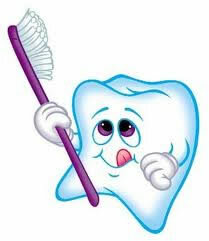Have you ever stopped to think why there is saliva in our mouths, and what its function is?
Saliva is a liquid produced by the salivary glands. In saliva we can find several substances, such as air (which gives it that foamy aspect), water, ptyalin, nitrogen, sulfur, potassium, sodium, chlorine, calcium, magnesium, uric acid, citric acid and proteins.
These substances are not by chance present in our saliva. Each of them has a specific function. There are substances that act to protect our mouth against harmful agents such as bacteria and viruses. These substances do not let microorganisms grow in our mouth causing cavities and infections. Of course, these substances cannot fight all these microorganisms on their own. They need your help with a good brushing after every meal.

Saliva helps protect our mouth from microorganisms, but it is not a substitute for good brushing
Saliva, in addition to moistening and protecting the mouth against bacteria, lubricates food to facilitate chewing, tasting and swallowing. Because it contains an enzyme called salivary amylase, saliva acts on digestion of some foods.

Saliva helps to digest some foods still in our mouth
An adult can produce about 1 to 2 liters of saliva per day, and when we eat some food, the amount of saliva produced increases.
Sometimes, when we smell, taste, or remember some food, our mouth waters, but why? When we feel this, our nervous system stimulates the production of saliva by the salivary glands. He does this because he interprets this information as if we were going to eat something, so our mouths are full of water.

When we feel like eating something, our mouth waters
At night, when we sleep, our body does not produce saliva, as it does not receive any kind of stimulus, so we wake up with a dry mouth.
Saliva is important for our body, but it can also transmit some diseases, such as colds, flu, herpes, mumps, measles, scarlet fever, chickenpox and others.
By Paula Louredo
Graduated in Biology



